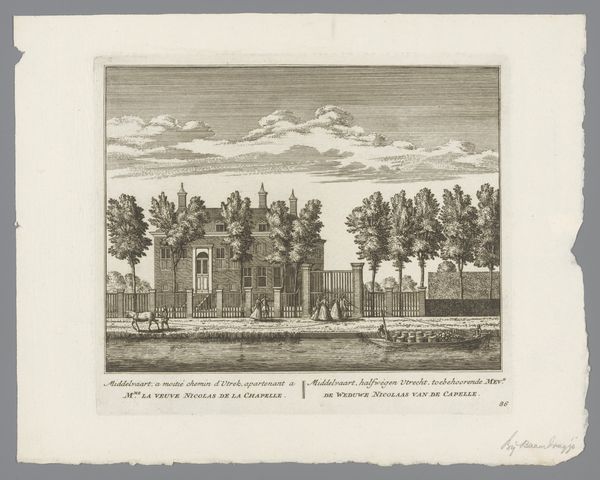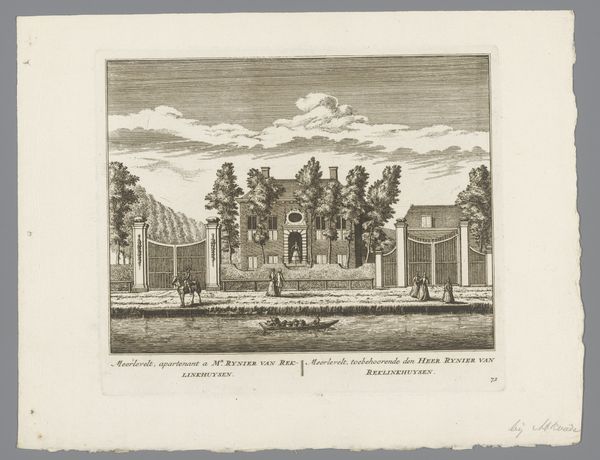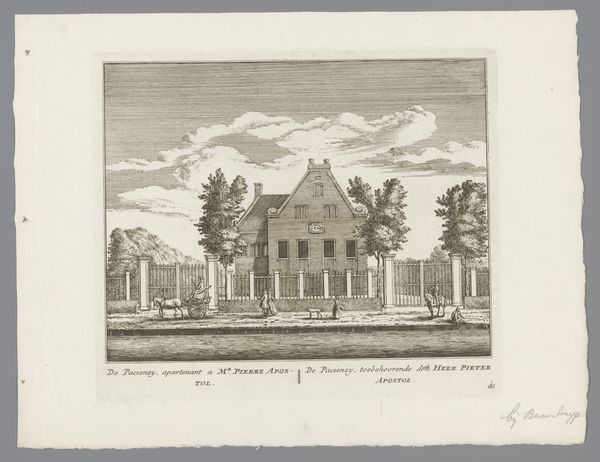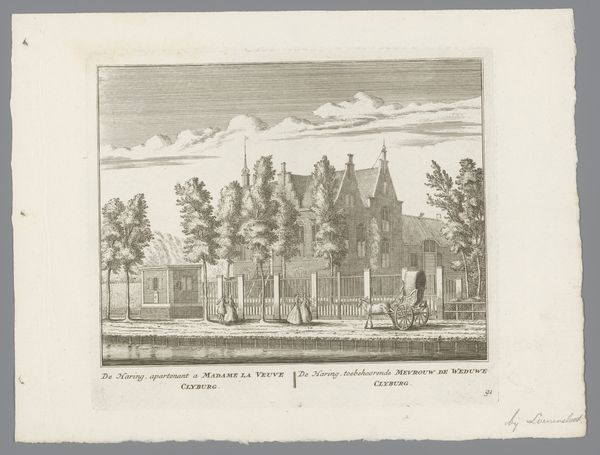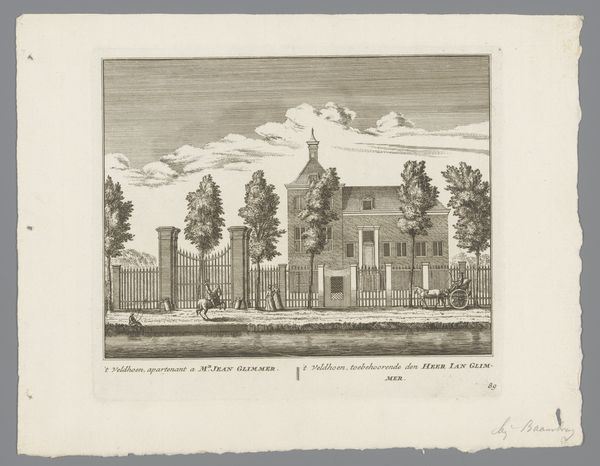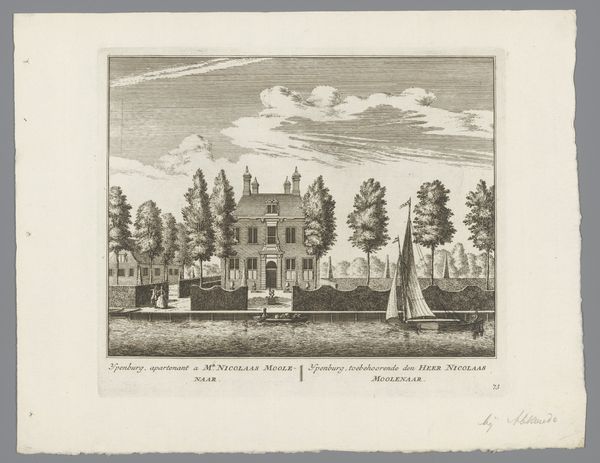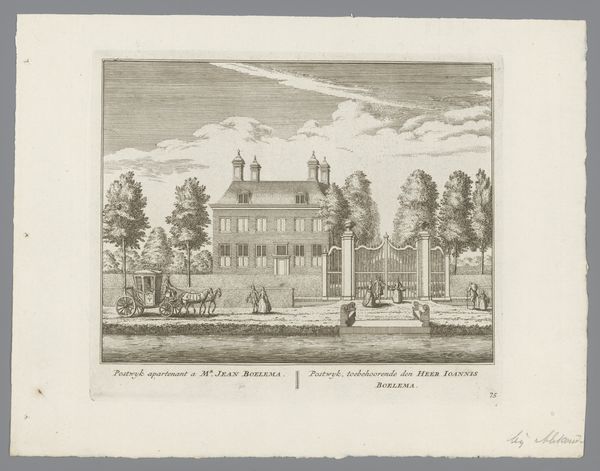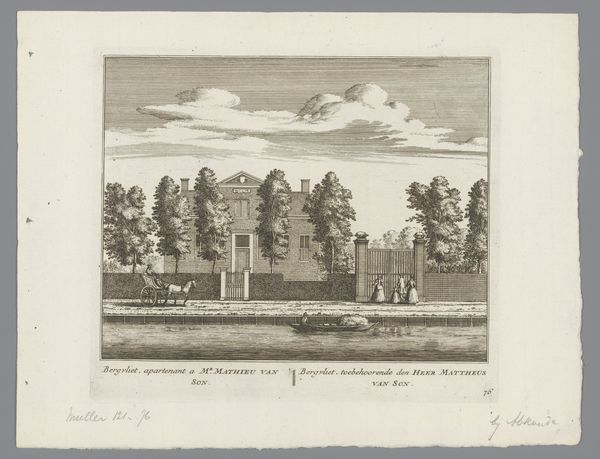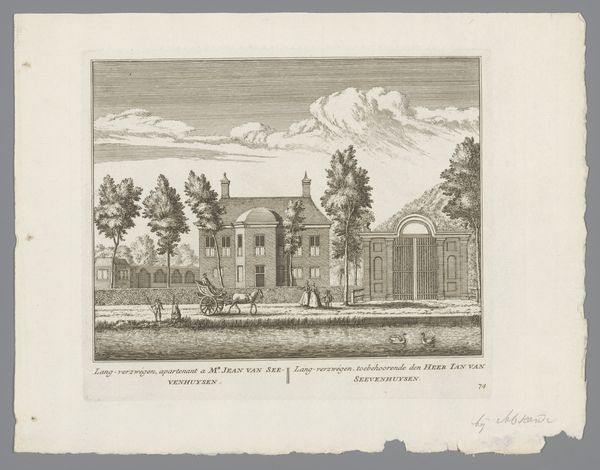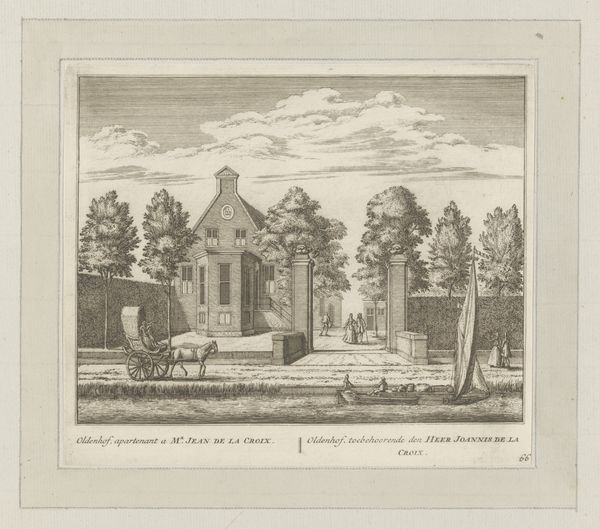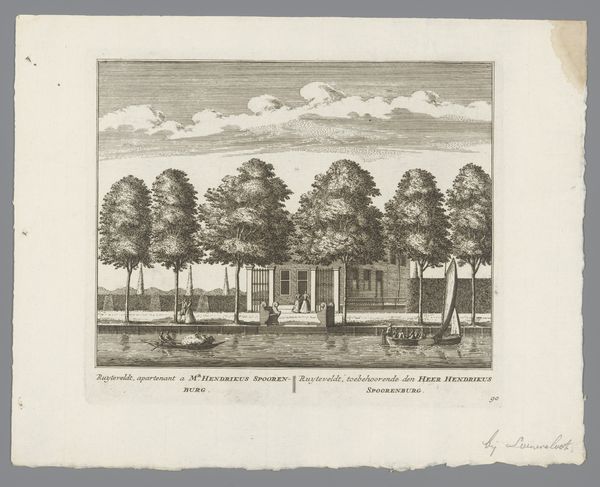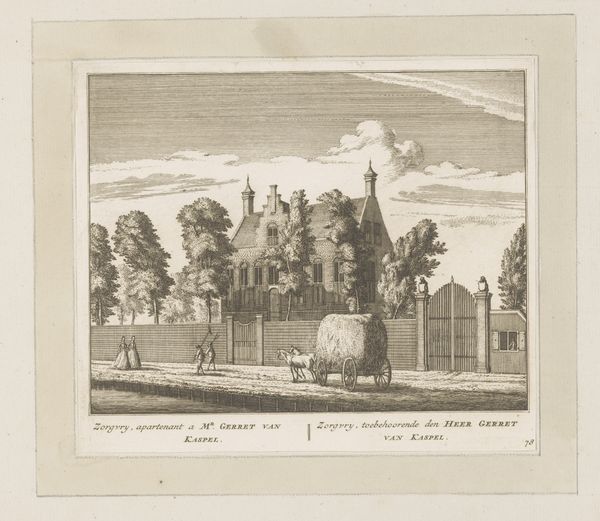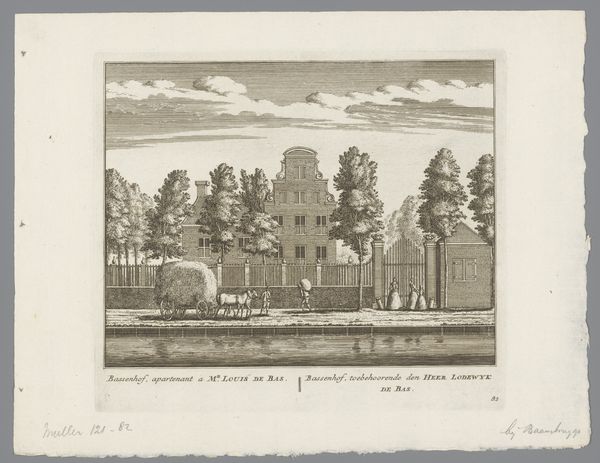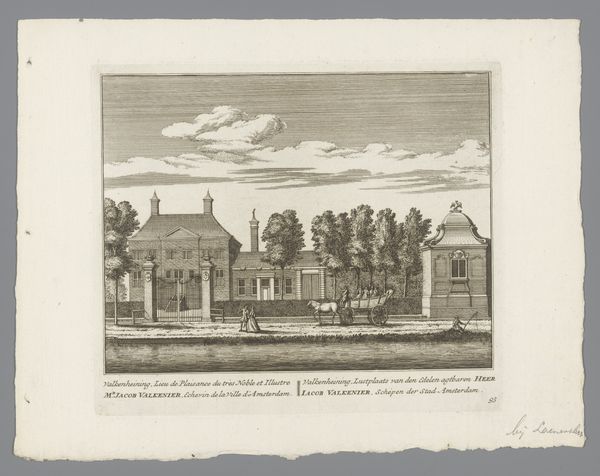
print, etching
#
baroque
# print
#
etching
#
landscape
#
cityscape
#
genre-painting
Dimensions: height 172 mm, width 200 mm
Copyright: Rijks Museum: Open Domain
Abraham Rademaker created this print of the country estate Meebaal, near Baambrugge, in the Netherlands, sometime between 1700 and 1735. The image presents a clear view of the estate from across a canal, emphasizing the wealth and status of its owner. During the Dutch Golden Age, country estates were symbols of social and economic power. This print reflects the cultural values of the Dutch elite, who sought to display their affluence through land ownership. Rademaker was known for his topographical prints, which documented various landscapes and buildings in the Netherlands. His work catered to the interests of the growing middle class, who were eager to consume images of their surroundings. As historians, we examine such artworks to understand the social and economic structures of the time. Through careful study of estate records, maps, and other visual sources, we can gain insights into the lives of both the wealthy owners and the laborers who maintained these estates.
Comments
No comments
Be the first to comment and join the conversation on the ultimate creative platform.
